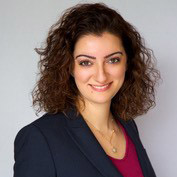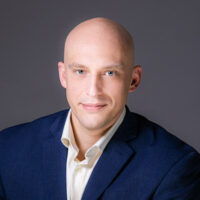Duke Weekend Executive MBA Student Blog

What Inspired Our First Class Service Project
Altogether, we raised more than $4,000 to fund the Rise Against Hunger meal kits.

The clanging of a gong reverberated through the Fox Center in the Fuqua building on the evening of June 17th, followed closely by the joyful shouts of more than 50 people. The sounds momentarily drowned out the feel-good oldies blaring from a weathered amplifier in the corner of the room. The gong would ring nine more times that evening, each time indicating we had passed another thousand-meal milestone for a total of ten thousand packaged meals.
Members of our class and program staff were participating in a service event—the first of its kind organized by a Weekend Executive MBA class in partnership with the nonprofit Rise Against Hunger. The group’s mission is to promote and support reliable and sustainable global food security. The meals we packed are destined for crisis relief and areas with high rates of malnutrition, with a special emphasis on ensuring children in these areas are not kept from educational opportunities due to food scarcity.
Altogether, we raised more than $4,000 to fund the meal kits. The Rise Against Hunger team delivered the supplies and facilitated the event, while Team Fuqua packed, sealed, packaged, and loaded more than 10,000 meals that will be delivered around the world to areas with poor food security.

Being the first Weekend cohort to successfully coordinate a class service project meant a lot to us. We sat down to discuss the inspiration behind this event and what it meant to us personally.
Collier: Why was participating in this service project something that was important to you personally, and why was it important to you as a Weekend Executive MBA candidate?
Bella: Helping those in need and extending it to community service is something that I’ve been exposed to since childhood. My family immigrated to the U.S. from the former Soviet Union when I was six years old. I’m the youngest of three kids.
My parents made the decision to move to the U.S. to provide better opportunities for their kids, but that all came at a high price. They gave up their established careers, friends, and family. When we came to the country, my parents had a really hard time in every aspect—learning English, trying to figure out what they were going to do for a job, putting food on the table, and navigating New York City. Some of the things that we all take for granted were really difficult for our family. But, even during those challenging times, there were many people who helped us, and that made a world of difference to my family.
It was just simple acts of kindness that really, really helped me see people in a different light and how kindness is contagious.
I remember earlier on, even when I was in 4th grade, a group of professionals with an organization called Junior Achievement, a non-profit, came in to teach financial literacy. They could have been at their job, but instead they came to our classroom to help us understand some basics such as how to balance a checkbook and how a bank works—all that good stuff. So, for me, I felt like any time where I saw someone really being present, spending their time and/or money—however it is that they’re able to make that difference—in such an impactful way was always something that resonated with me.
As a Weekend Executive MBA candidate, I think it’s even more important that we all give back to those in need. Many of us are leaders and others are aspiring to be leaders, so no matter how much of an impact we all can make as individuals, as Team Fuqua we can make an even greater impact together. In addition, I’m a parent of three kids and it’s equally important for my children to learn the value of kindness and community impact starting from a young age.
I don’t think that you need a fancy title to give back to your community, you just have to want to make an impact—it’s about ordinary people doing extraordinary things.

Collier: I love the intensely personal ties. I love the generational component of it—the values that you received and then passing on those values to your kids. I think that’s also something that we’ve talked about as we were going through the process of putting this together. It was an opportunity to leave a legacy with the school and pass something on to future generations of students.
Bella: Do you want to share more on how this project came about? You were really instrumental in putting together your initial thoughts and research based on some of the community service you’ve done.
Collier: I think for reasons very similar to what you described, being involved in some kind of community service project was a goal of mine from very early on in the program. Expanding my community was part of my decision-making process in coming to Fuqua, and I was already doing some volunteer work in the Durham area with a transition shelter and also in the area of food security.
From my experience in the military, serving together, having that higher purpose to focus on as a group, going through what you might call shared suffering—even if that’s just getting really sweaty, packing a bunch of food bags—really brings people together and helps establish communities. So, I knew this was a priority for me coming into the program. During our orientation week, I remember walking by a TV in the hallway of the Fuqua building and seeing images from Habitat for Humanity and images of Durham Rescue Mission and some work that previous classes had done there. During one of the breaks, I asked one of the staff members how Weekend Executive MBA classes had organized these projects in the past. She told me other programs, like the Daytime MBA program, had done service projects, but our program had never done one as a class.

So, that’s what sparked this idea. I wanted to find something our cohort could do together as a class service project, and create a template for how future classes could do the same. That’s how I got involved. Then you, as a class liaison, took on more of the planning in a more official capacity. Then critically, the program staff got involved. Their experience, their deep ties in the community, and their ability to help us pull all of this together, I think really made the difference.
Bella: It was definitely a team effort, but well worth it! I hope that this is just a stepping stone to more community service to come in the future.
In our next blog, we discuss the lessons we learned while planning the service project.




